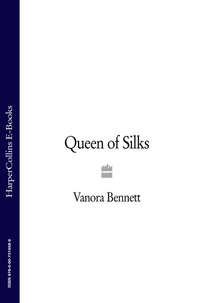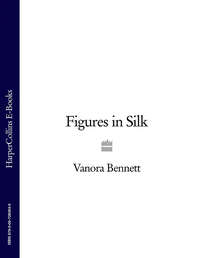
Полная версия
Portrait of an Unknown Woman
I had no qualms about opening the letter. There was too much I didn’t know about John Clement to pass up any opportunity of knowing more. There was no doubt in my mind, no morality, just crystal clarity of purpose. But this note was short and formal. Shorter than the one he’d written me. ‘My dear Elizabeth,’ it said:
I write to congratulate you. I hear that you and William are to have a child in the autumn. You will remember from the classroom that my favourite advice has always been: look forward, not back. Your husband is a good man with an excellent career ahead of him; I wish you both every happiness in your family life.
By the time I’d got this far, my conscience had caught up with my hands. I didn’t usually think twice about inspecting any correspondence that might relate to me; life is too uncertain not to look after yourself any way you can. But this was a harmless expression of formal good wishes, a private matter not intended for me. Feeling awkward at the contrast between my own cold-hearted prying and the warmth being shown by Master Hans, a stranger in our midst, I slipped back in, plumped up Elizabeth’s pillows, rearranged her quilt, and contrived to drop the letter back on the floor by her bed. She’d think it had simply fallen down; she’d never guess I’d looked it over. Then I went away properly, secretly relieved to leave the two of them to their conversation, which had turned to full-blooded midwives’ anecdotes about waters breaking and forceps that I didn’t much like the sound of – but which the usually fastidious Elizabeth seemed to be finding fascinating. If I’d been a different person – less self-contained, less able to reason – I might even have felt a little jealous that she was so effectively managing to monopolise the attention of my new friend the painter. But I’d never been the jealous type. I was pleased she was finding comfort in his gory stories, even if I didn’t really want to stay and listen.
So I went back out to the garden to find a patch of sunlight far from the gatehouse where I could close my mind to everything but the warmth on my back and the drifting clouds of blossom all around, and sit and murmur ‘he loves me not, he loves me’ as I pulled the petals off daisies, like a lovelorn milkmaid, and read my own letter over and over again until I knew it by heart.
* * *
Hans Holbein felt almost unbearably sorry for the pitiful little scrap of femininity huddled up in the bed, hating her life. He hadn’t completely understood all the words in her wounded outpouring: ‘It was me who found John Clement and brought him here – and he as good as ignored me when he got here, and just talked to Meg, and went away without so much as a word. They all do that: talk philosophy to clever Meg Giggs and Greek to intellectual Margaret Roper. No one here has time to waste on an ordinary girl – someone with nothing better to recommend her than a pretty face. And now he’s sent the kind of pompous little note a stranger might write. As if he hardly knows me. As if I’m nothing to him …’ But Hans Holbein had understood the sense of what she was saying; he knew she was feeling something like the howling pain he’d felt with Magdalena. And when she bit her lip, and tears started out of her eyes, and she began to furtively dash them away, he wanted to give her a big comforting hug and tell her any sensible man should love her for her lovely eyes and her heart-shaped face. But he couldn’t tell her that. Who was he to tell a client’s daughter things like that? It was her husband’s job. But it wasn’t difficult to see Elizabeth was in love with the wrong man. And who should rightly comfort a married woman crying because a man not her husband was being too distant with her (and not distant enough with her witty, bookish sister) – even Hans Holbein, with his respect for truth, couldn’t tell. He was too fascinated himself by Meg Giggs’s awkward movements, blazing eyes and odd ideas to fail to understand if other men also fell under her spell.
Personally, he couldn’t see the attraction of John Clement. The older man he’d shared a wherry with down the river might have chiselled, fine, noble features and a handsome athlete’s body. He might speak Greek and know medicine. But his pale, kind eyes didn’t have any of the fierce glitter of intelligence that you could see in More’s eyes, or Erasmus’, or, for that matter, young Meg’s. You could see at once that his mind wasn’t of the same calibre as those of the people around him. He gave the impression, too, that he’d fought hard battles in his past and learned what failure was. If Hans Holbein had been feeling more objective, he’d have admitted more easily to a grudging respect for a man who he also felt had probably learned to accept his defeats gracefully and find a different kind of victory in adapting to new circumstances. But Holbein had taken against the other man, with a rivalrous male prickle of muscle and brawn. He wasn’t about to give John Clement the benefit of any doubt. The man was a loser, he’d decided; it would be better for both women if they could see it too.
But it wouldn’t help Elizabeth to tell her his opinion of John Clement. The one thing about women that he knew for sure was the fierce, devoted way they fell in love with their babies. The kindest thing he could do for Elizabeth was to hold out that hope to her – that a happiness she couldn’t yet imagine was waiting around the corner. Over the next few days, he made it his business to walk in the garden every afternoon with Elizabeth. He found her birds’ eggs and pretty pebbles. He sketched her little newborn cherubs. And – stifling his guilt about Elsbeth alone in Basel with two children to feed and his baby growing in her belly – he talked about the joys of bringing life into the world.
It was a relief to do this small good deed every day, because Hans Holbein was worrying about his work. His picture of Sir Thomas wasn’t coming out the way he’d imagined when Erasmus had first talked to him about the man who was the witty, humble, perfect model of humanist friendship. Hans Holbein was beginning to wish he hadn’t got drunk two nights in a row with Nicholas Kratzer, and heard from him the frightened stories the Germans of the Steelyard had been telling about his employer ever since he’d smashed his way into their London enclave at the head of a troop of men at arms. The merchants were sitting innocently down to dinner in their hall at Cousin Lane, next to their river mooring with its wooden crane, hungry after offloading all the day’s import of grain and wax and linen safely into their storehouses, when a scowling Thomas More, with dark shadows about the chin and surrounded by a bristle of swords, burst in on them, hunting for heretics. ‘I have been sent by the Cardinal. Partly because one of you has been clipping coins; but also because we have reliable news that many of you possess books by Martin Luther. You are known to be importing these books. You are known to be causing grave error in the Christian faith among His Majesty’s subjects.’ He arrested three of the merchants and had his men drag them off into the night. He had a list of the rest drawn up by dawn. The next morning he was back, watching, narrow-eyed, thin-lipped, as his heavies searched rooms and slashed into boxes. Eight more Germans were forced off to Cardinal Wolsey that day to be rebuked.
It was a mistake to know about that. It was even more of a mistake to know that Kratzer, whose wit and humour had earned him not only Sir Thomas’s patronage here but even that of Cardinal Wolsey, might rely on having powerful English admirers promoting his work, and also freely admitted to enjoying Sir Thomas’s company and the sharpness of his mind when they talked, but at the same time secretly considered himself among the freest of freethinkers. The astronomer boasted (true, only in a whisper, and in the safety of German; a patron respected all over Christendom was a patron worth keeping, even if he hadn’t been so confusingly likeable as More was from the safety of his own household) of having written to Hans Holbein’s hero, Albrecht Dürer, to congratulate him on Nuremberg turning ‘all evangelical’ and to wish him God’s grace to persevere in the reformed belief. Because all that secret knowledge – and the open knowledge that Sir Thomas suspected the German merchants skulking uneasily around the Steelyard of being the main conduit for the smuggling of heresy into England – was coming out in his picture. And the face looking back at him from the easel now was the face of the persecutor: with red-rimmed eyes, a narrow mouth and grasping hands.
Even the composition wouldn’t come right. He’d meant to put a memento mori in the corner. But his usual prop – the skull he often used for the purpose of warning his sitters and viewers against worldly vanity – had somehow gone missing in his mess. Someone must have tidied it away somewhere, or he’d buried it under an avalanche of books or boots. He’d never been good at keeping track of things. He had no idea where in London to go to lay hands on a human skull – except to the Steelyard, where at least he could understand what was said to him without difficulty. But he also knew it would be worse than impolitic to go near the Steelyard.
He couldn’t shake off the worry. It nagged at him while Meg sat for him every morning. He fretted secretly during his afternoon walks. He obsessed through the evenings over the painting that wouldn’t come right.
And when he wasn’t worrying about More’s picture, he was worrying over what Meg Giggs felt about Clement. Meg glowed with secretive radiance. And he’d noticed that she had started slipping outside to the cart to see the cook every morning, to ask for messages from town. If he only knew her better, he’d be better able to tell whether her sparkling eyes meant she was in love. But he couldn’t see into her heart; she was as unreadable as a dazzle of sun on water.
He didn’t dare ask directly. He was afraid of the anger that any forwardness might spark in Meg’s eyes. He sensed that she wasn’t someone who would take well to being interrogated. But, as her portrait began to take shape, Hans Holbein found himself fishing cautiously for information.
‘Do you know,’ he said, with his back to her, mixing paint, ‘that I published John Clement’s likeness more than ten years ago, back in Basel?’
‘You said something about it once,’ she replied, ready to be engaged; with a sinking heart he noted her quickening interest as soon as Clement’s name came up.
‘Well, it wasn’t really his likeness, as it turns out,’ he said awkwardly. ‘Your father has explained everything to me now. But I thought it was at the time. You see, I drew the frontispiece for a Basel edition of Utopia.’
Now he had her attention.
Holbein had spent his first day in Chelsea wondering whether this (old) John Clement had anything to do with the (young) John Clement whose picture he’d drawn, on Erasmus’ instruction, ten years before, when Utopia had just come out. More’s book had sold so well that Johannes Froben wanted some of the action; Erasmus had arranged for a new edition and got More’s permission to republish. The mischievous story was ironically framed by an account of how a sailor with a liking for tall tales described Utopia – the perfect society – to More himself, his real-life friend Pieter Gillis of Antwerp and the character whom the author called ‘puer meus’: John Clement.
‘So naturally I drew a boy. With long hair. Fifteen years old at most. I’ve got it here somewhere,’ Hans Holbein said now, gesturing helplessly around the worsening chaos of paints and pictures and props behind him, wondering for a moment at Meg Giggs’s sudden, secretive flash of a grin. ‘And then I got here and saw the real John Clement. And he’s not so young – he could be my father! So I was embarrassed. I realised I’d done a bad job. And I thought your father would sack me on the spot for being a bad painter, ha ha!’
Meg was smiling more gently now, seeing and hearing his professional discomfiture. ‘But Master Hans,’ she said softly, ‘it was only a turn of phrase. Father just meant that John Clement was his protégé – not that he was really a young boy. John Clement was working as his secretary on a mission to the Low Countries while Father wrote Utopia. But you weren’t to know that. You were quite right to illustrate the words “puer meus” with a picture of a boy. No one would fault you for that.’
It was a kindly meant answer, and he felt warmly towards her for it, even if it didn’t answer his unspoken question about what she thought of John Clement.
‘Yes,’ he said, persisting a little more, ‘that is what your father told me when I asked. He was very kind. But I still felt uncomfortable. I was so sure that Erasmus had told me to draw a boy …’
But she didn’t respond in a way Hans Holbein could understand. She just settled deeper into her chair, perfectly still in her pose, and began to dream of something private with a blissful smile on her face.
‘You’re glowing, Meg,’ Margaret Roper said. ‘It must be all those walks you’ve been going on. You’ve caught the sun. You look radiant.’
Margaret looked to Cecily, next to her on the bed, for confirmation, but Cecily only laughed weakly. ‘It’s probably just that you’ve spent the past week looking at me in this bed all day and I’m still all sick and green. Anyone would look radiant by comparison,’ she said to Margaret.
I was perched on the side of the bed. I was giving them another dose of ginger tea. It had become a habit. Then Cecily began to look curiously at me. She wasn’t as quick-witted as Margaret, or as kind, but now the idea had been suggested to her she was letting her imagination get to work.
‘It’s true, though,’ she said mischievously. ‘She’s right. You’ve lost that tight-lipped look you’ve had all winter. And now I come to think of it you haven’t flared your nostrils at me once in days either …’ She twinkled.
I stared. ‘What do you mean, flared my nostrils?’ I said with a hint of sharpness, suspecting mockery.
They looked at each other and began to giggle helplessly, two little dark heads lying on the bed like puppies and shaking with mirth.
‘… but you’re doing it again now,’ Cecily said. ‘Look.’ And she pulled a haughty face, with her nose in the air and her lips pursed together and her nostrils flared so wide that the tip of her nose went white. ‘You always do it when you’re cross,’ she said, relaxing her face back into a giggle. ‘Didn’t you know?’
‘You did it every time we tried to introduce you to anyone at any of the wedding parties,’ Margaret confirmed. ‘One handsome young potential husband after another, frozen by your deadly looks. Don’t you remember?’
I was shaking my head in amazement. I recognised the expression Cecily was imitating as my own, all right, but I’d had no idea it looked so angry and so forbidding from the outside. And all I remembered of the endless winter parties was being fobbed off with one dull young man after another – the wallflowers no one in their right mind would want to talk to – and politely making my excuses to avoid spending more time than necessary with the spottiest, most unpreposessing stopgaps. It had never occurred to me that Margaret and Cecily were trying to find me a husband from among their new cousins-in-law. It took a pained moment or two of struggling with my pride before I could bring myself to react. But then I found myself grinning and screwing my face up in rueful acknowledgement. ‘Do I really do that all the time? And did I really scare off all the husbands?’ I asked, joining in their giggles. ‘Oh dear.’
‘We were in despair,’ Margaret said, and her laughter was tinged with relief.
‘Ready to give up on you.’
‘You were so fierce …’
‘… that Giles started calling you the Ice Queen …’
‘… till Will stopped him.’
‘… But then you bit Will’s head off for introducing you to his cousin Thomas …’
‘… so he stopped sticking up for you …’
I’d slipped down onto the bed with them now. I was holding my sides. We were groaning and snorting with laughter.
Then Cecily rolled onto her tummy and took some deep breaths. ‘Ooh, I must stop,’ she said, between bursts of giggles, ‘all this laughing is making me feel sick again.’ She breathed herself back into seriousness again and propped her head onto her hands and gave me an inquisitive look. ‘So what’s changed?’ she asked. ‘You can tell us, Meg. What’s put you in a good mood again?’ She paused before adding, melodramatically: ‘Perhaps you are … In Love?’
It was such an innocent, relaxed moment that I almost let down my guard and blurted out a serious ‘yes’. For the first time, perhaps ever, I could imagine confiding in my nearly sisters. But they were still in the grip of the giggles, and Cecily’s question had been too much for them. Before I got a chance to say anything, they’d both subsided back against the pillows, and were rocking each other again in helpless, painful glee. I wasn’t sure whether I was pleased or not that I’d been saved from the indiscretion I’d been about to commit.
* * *
‘How’s Father’s picture coming along?’ Meg asked, at the end of her fourth sitting. ‘Will you show it to me soon?’
It was an overcast morning. The light was softer than usual. With a soft light in her eyes, she’d been telling Hans Holbein a long-ago story about Sir Thomas’s wit: about how he’d met a fraud of a Franciscan monk in Coventry who’d told him that getting to Heaven was easy if you only relied on the Virgin Mary. All you had to do was say the rosary every day (and pop a penny into the Franciscan’s purse every time you recited the psalterium beatae virginis). ‘Ridiculum,’ Sir Thomas said matter-of-factly, even after the monk brought out all his books ‘proving’ that Mary’s intervention had worked miracles on many occasions. Finally, with a lawyer’s respect for logical argument, he silenced the monk with the reasonable argument that it was unlikely that Heaven would come so cheap.
Hans Holbein had roared with appreciative laughter. ‘That sounds the kind of thing a friend of Erasmus’ would say,’ he chortled. It was also the kind of thing that he might say, or Kratzer, if either of them had the presence of mind to get the phrases off their lips with More’s panache. But he also noted her nostalgic look, and the fleeting sadness on her face as she quietly said ‘yes’. They both knew that this wasn’t how the Sir Thomas of today, the defender of the Church at all costs, would behave.
He didn’t understand why, but something about the complicity of that moment meant that he instinctively nodded assent when she next asked to see the picture.
‘I am not usually shy about my work. But this one I am having problems with,’ he said, dancing a little jig of unease in front of the covered picture. ‘I have seen your father, and talked to him, and I know he is an intelligent, good, gentle man who loves to laugh. Only the other day I was laughing to hear his judgement in court when your Dame Alice adopted a street dog, and a beggar woman took her to court saying the dog was hers; and Sir Thomas ruled that Dame Alice must buy the dog; and everyone was happy, the kind of justice I can understand, ha ha! But my picture is too serious. And nothing I do will put laughter into the face of the man I’m drawing.’
Конец ознакомительного фрагмента.
Текст предоставлен ООО «ЛитРес».
Прочитайте эту книгу целиком, купив полную легальную версию на ЛитРес.
Безопасно оплатить книгу можно банковской картой Visa, MasterCard, Maestro, со счета мобильного телефона, с платежного терминала, в салоне МТС или Связной, через PayPal, WebMoney, Яндекс.Деньги, QIWI Кошелек, бонусными картами или другим удобным Вам способом.






